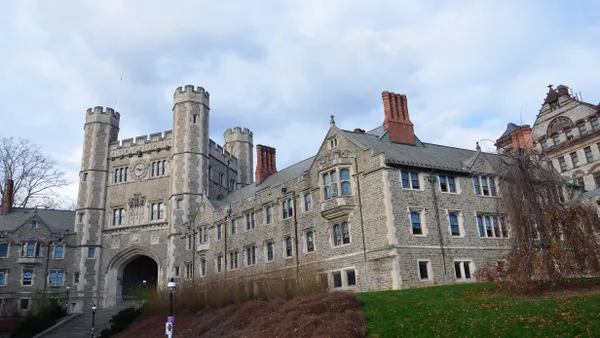Dive Brief:
- More than 30 education and college access groups, lawmakers, and academics are asking the U.S. Department of Education to broaden the admissions data it collects from institutions annually to include new information, like racial breakdowns of applicants and admitted students.
- In a letter Wednesday to James Kvaal, the department’s top higher education official, the coalition requested the department start requiring colleges to send data on how many applicants and students they admit through legacy policies, which give admissions preference to family members of alumni. Advocates also want colleges to report how many early decision and early action applicants, admits and enrolled students they have. Applying early decision or early action allow prospective students to receive an admission decision sooner, though early decision binds them to attend a particular institution before they can weigh competing offers.
- Colleges should disaggregate their legacy, early decision and early action applicant data by race and ethnicity, the coalition argues. Critics say these practices skew admissions in favor of wealthy and White applicants.
Dive Insight:
In light of the expected U.S. Supreme Court decision this year that would strike down or narrow the use of race-conscious admissions, advocates wrote that the Education Department should mandate new transparency.
Research has shown that after states like California banned race-conscious admissions, the share of Black, Hispanic and Native American students declined in public institutions.
Colleges, policymakers and the public will need a deeper level of admissions data to understand how the Supreme Court’s opinion will affect the higher ed landscape, they wrote.
Every year, federally funded colleges send the Education Department extensive data on such metrics as enrollment, finances and staff, for the Integrated Postsecondary Education Data System, known commonly as IPEDS.
This information gathering helps the Education Department hold colleges accountable and has over time become more equity-minded.
Under the Obama administration, the department began asking about graduation rates of students who received federal Pell Grants, a key form of financial aid for low- and moderate-income students and families. And in fall 2022, IPEDS began to inquire about whether colleges consider legacy preferences.
More granular data is needed, the collection of advocacy groups, policymakers and college faculty argue. Prominent signers on Wednesday’s letter include think tank New America, college access organization The Institute for College Access & Success, Bob Shireman, higher ed policy guru and senior fellow at The Century Foundation, and the Institute for Higher Education Policy.
The advocates want the Education Department to change IPEDS by next fall, after the Supreme Court likely rules, said James Murphy, deputy director of higher education policy at think tank Education Reform Now, which organized the letter.
Murphy said in a telephone interview Tuesday that colleges should report data during all stages of admissions — how many students apply, are admitted and commit — because institutions need to know if and when during the process they are failing to attract and enroll a diverse class.
The fault may not lie entirely with colleges, Murphy said.
“This is not just all college recruitment, it’s also about preparation — who is telling their students to apply where,” he said.
He said new reporting measures wouldn’t be much of a lift for colleges, many of which already track this data for internal purposes. The letter states most colleges would be exempt from the requirement as they accept all students.
“Increasing transparency is more than just a path toward greater accountability for institutions of higher education; it is a powerful signal the Biden administration can send to indicate its commitment to diversity and access in postsecondary education,” the coalition wrote.















